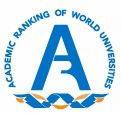
Wil jij met kennis én compassie het verschil maken voor kinderen en jongeren? Kansen creëren, talent aanmoedigen en veerkracht versterken? Ontdek in deze master hoe je dat kunt doen.

Het deeltijd programma is identiek aan het voltijd programma, maar is verdeeld over twee jaar.
| Semesters | ||||
|---|---|---|---|---|
| CoursesCourse Catalog > | 1a | 1b | 2a | |
| Internship
Please note that while an internship is part of the programme, finding an internship for international students in a Dutch organisation is extremely difficult. For international students, a research-internship at the faculty is therefore most likely. https://ocasys.rug.nl/current/catalog/course/PAMAY501 |
||||
| Contemporary Youth Issues | ||||
| Innovations and Transf. in Youth Care and Edu. | ||||
| DMCP:using Research to improve Policy and Practice | ||||
| Participation and Policy | ||||
Het deeltijd programma is identiek aan het voltijd programma, maar is verdeeld over twee jaar.
| Semesters | ||||
|---|---|---|---|---|
| CoursesCourse Catalog > | 1a | 1b | 2a | 2b |
| Master's thesis | ||||
| In the best interests of the child (elective) | ||||
| Qualitative Research Methods | ||||
| Citizenship development and education (elective) | ||||
| Student Diversity in the (Inclusive) Classroom (elective) | ||||
| Education for a better world (elective) | ||||
| Specific requirements | More information |
|---|---|
| previous education |
|
| knowledge minimum |
|
| Study programme | Organization | Transition |
|---|---|---|
| All Research universities |
Via a pre-master More information:Je hebt een relevant wo bachelordiploma en beschikt over de vereiste basiskennis. De toelatingscommissie beoordeelt of je toelaatbaar bent. |
|
| Pedagogical Sciences | All Research universities |
No additional requirements More information:Of Onderwijswetenschappen. |
| Study programme | Organization | Transition |
|---|---|---|
| All Universities of applied sciences |
Via a pre-master More information:Geldt voor hbo-opleidingen verwant aan de universitaire bachelor Pedagogische Wetenschappen. Zie http://spo-groningen.nl/ voor informatie over de pre-masters en de verwante hbo-opleidingen. |
| Study programme | Organization | Transition |
|---|---|---|
| Pedagogical Sciences | University of Groningen | No additional requirements |
| Type of student | Deadline | Start course |
|---|---|---|
| Dutch students | 01 June 2026 | 01 September 2026 |
| EU/EEA students | 01 May 2026 | 01 September 2026 |
| non-EU/EEA students | 01 May 2026 | 01 September 2026 |
| Specific requirements | More information |
|---|---|
| previous education |
Met een afgeronde academische bacheloropleiding in onderwijskunde of een verwant vakgebied kun je toelating aanvragen. |
| knowledge minimum |
|
| language test |
Met het behaalde staatsexamen Nederlands als tweede taal (NT2) vervul je de taaleis voor voldoende beheersing van de Nederlandse taal. |
| Type of student | Deadline | Start course |
|---|---|---|
| Dutch students | 01 June 2026 | 01 September 2026 |
| EU/EEA students | 01 May 2026 | 01 September 2026 |
| non-EU/EEA students | 01 May 2026 | 01 September 2026 |
Career services
BSS
Waar wil je na je studie aan
het werk? Je kunt tijdens je studie al terecht bij
Career
Services
van de
faculteit. Zij helpen je bij het oriënteren op je loopbaan,
het ontwikkelen van vaardigheden, solliciteren en een stage
vinden.
Je bent verantwoordelijk voor kwaliteitsbewaking en verbetering van het werk van professionals door supervisie, coördinatie, ondersteuning en/of leiderschap.
Je werkt samen met andere organisaties en onderzoekers om kennis over goede praktijken te verbinden aan de dagelijkse praktijk.
Je werkt met kinderen en hun families, ondersteunt leraren en opvoeders, en zet je in voor initiatieven die burgerschap en inclusief onderwijs stimuleren.
Je helpt scholen, gemeenten of zorgorganisaties bij het ontwikkelen van inclusief beleid, en adviseert over interventies gericht op kansengelijkheid en participatie.
Je werkt samen met onderzoekers, teamcoördinatoren en kwaliteitsmedewerkers om de professionele praktijk in de jeugdsector te monitoren en verbeteren.
Je ontwikkelt, analyseert en evalueert jeugdbeleid op basis van onderzoek en praktijkervaring, en vertaalt dit naar effectieve aanpakken op lokaal of landelijk niveau.
Je maakt deel uit van een team dat werkt aan jeugdbeleid, en werkt samen met jeugdorganisaties, beleidsmakers en kwaliteitsinstanties.
Je initieert en coördineert projecten rond jeugd, participatie, welzijn of onderwijs bij NGO's, overheden of sociale ondernemingen
Je doet praktijkgericht of beleidsgericht onderzoek naar opgroeien, opvoeden en jeugdzorg.
Als je tijdens je scriptieonderzoek enthousiast wordt over wetenschappelijk onderzoek, kun je solliciteren op PhD-posities of je eigen voorstel indienen bij universiteiten of onderzoeksinstellingen.
Je geeft scholing of ontwikkelt trainingsprogramma's voor jeugdprofessionals, bijvoorbeeld binnen opleidingen, trainingsbureaus of kenniscentra.